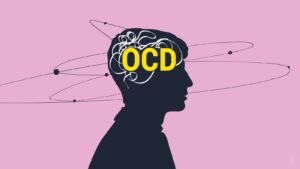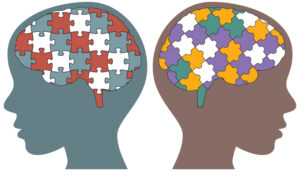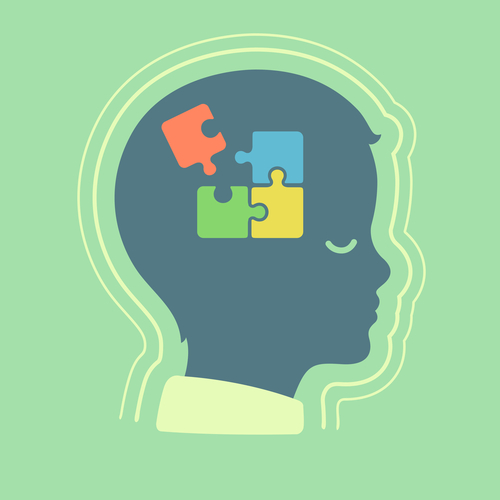There is a lot of confusion surrounding OCD and autism. Some people think that they are the same thing, while others believe that they are completely different. So, what’s the difference? In this blog post, we will explore what actually is OCD v/s and Autism, as well as discuss which conditions are more common in each group. We will also look at the symptoms of each disorder and how one can treat both conditions.
Contents
What Is OCD?
 OCD is an anxiety disorder that causes people to have repetitive and intrusive thoughts, feelings, or behaviors. People with OCD may have some obsessions with germs or dirt, and they may wash their hands frequently or avoid touching things that they think are dirty. They may also be afraid of being contaminated by other people’s bodily fluids. People with OCD may also have compulsions, which are repetitive behaviors that they feel compelled to do in order to relieve their anxiety. These compulsions might include counting objects, organizing objects in a certain way, or checking doors or appliances multiple times to make sure they’re turned off.
OCD is an anxiety disorder that causes people to have repetitive and intrusive thoughts, feelings, or behaviors. People with OCD may have some obsessions with germs or dirt, and they may wash their hands frequently or avoid touching things that they think are dirty. They may also be afraid of being contaminated by other people’s bodily fluids. People with OCD may also have compulsions, which are repetitive behaviors that they feel compelled to do in order to relieve their anxiety. These compulsions might include counting objects, organizing objects in a certain way, or checking doors or appliances multiple times to make sure they’re turned off.
What Is Autism?
 Autism is a developmental disorder that affects communication and social interaction. People with autism often have trouble understanding nonverbal cues, such as body language or facial expressions. They may also have difficulty understanding and responding to other people’s emotions. People with autism may prefer to be alone, and they may have repetitive behaviors or interests. Some people with autism are also nonverbal.
Autism is a developmental disorder that affects communication and social interaction. People with autism often have trouble understanding nonverbal cues, such as body language or facial expressions. They may also have difficulty understanding and responding to other people’s emotions. People with autism may prefer to be alone, and they may have repetitive behaviors or interests. Some people with autism are also nonverbal.
Autism is a spectrum disorder, which means that it affects people in different ways. Some people with autism are high functioning and can live relatively independent lives, while others may need lifelong care and support.
OCD V/s Autism
When it comes to neurological disorders, there are a lot of similarities between OCD and autism. Both conditions are characterized by repetitive behaviors and rituals, and both can cause a great deal of distress for the sufferers. However, there are also some very important differences between the two disorders. Here’s a closer look at OCD vs autism:
One of the most significant differences between OCD and autism is that people with OCD generally have insight into their condition. This means that they are aware that their obsessions and compulsions are irrational. Also, they often feel a great deal of shame and embarrassment about them. People with autism, on the other hand, typically do not have this same level of insight. They may not be aware that their behaviors are unusual, and they may not understand why other people find them so upsetting.
Another key difference between OCD and autism is that people with OCD usually have relatively normal social functioning. They may experience some difficulty in social situations, but they generally don’t avoid social interaction altogether the way that people with autism often do. People with autism, on the other hand, often have significant problems with social interaction. They may be completely unable to communicate with others, or they may only be able to interact in very limited ways.
There are also some differences in the way that OCD and autism are treated. People with OCD often respond well to cognitive-behavioral therapy, which helps them to understand and change their thoughts and behaviors. People with autism may also benefit from behavioral therapies, but they often require more specialized interventions, such as speech and occupational therapies.
OCD V/s Autism In Children

OCD or Autism in children? This is a question that often puzzles parents. Both the disorders have similar symptoms, but there are some key differences between them.
Here are some of the key differences between OCD and Autism in children:
-Autism is a developmental disorder, while OCD is not. This means that autism affects the way a child develops mentally and socially, while OCD does not.
-Symptoms of autism typically appear early in life, around 18 months to 24 months old. Symptoms of OCD usually appear later, around age four or five. However, it is possible for symptoms of OCD to appear earlier than this.
-There is no known single cause of autism, but there are several theories about what may contribute to its development. OCD, on the other hand, is also usually a result of combination of genetic and environmental factors.
-There is no cure for autism, but it can be treated with behavior therapy and medication. You can also treat OCD with behavior therapy and meditation. Also, many people with OCD see a significant improvement in their symptoms.
-People with autism typically have difficulty with social interaction and communication. People with OCD may also have difficulty with social interaction and communication. But this is usually due to the anxiety that comes with the disorder.
Is There Any Difference Between Treatment of OCD And Autism?

The main difference between the treatment of OCD and autism is that people with OCD are usually treated with medication, while people with autism are not. However, both everyone can treat both the disorders with therapy.
People with OCD often have intrusive thoughts or images that cause them anxiety. They may also have compulsions, which are repetitive behaviors that they feel compelled to do in order to relieve their anxiety. For example, someone with OCD may wash their hands repeatedly or check the locks on their doors over and over again. People with autism may also have repetitive behaviors, but these are typically not done in response to anxiety-provoking thoughts or images.
One can treat both OCD and autism effectively with therapy. Cognitive behavioral therapy (CBT) is a type of therapy that doctor suggests is to be helpful for both conditions. In CBT, people learn to identify and challenge the thoughts and beliefs that contribute to their anxiety or compulsions. They also learn skills for managing anxiety and coping with difficult situations.
People with OCD may also benefit from medication, such as antidepressants. These medications can help reduce anxiety and ease symptoms of OCD. People with autism typically do not take medication, but some people with severe autism may benefit from certain types of psychiatric medication.
If you or someone you know is struggling with either OCD or autism, it’s important to seek professional help. While there are some similarities between the two disorders, there are also some very important differences.
Conclusion
OCD v/s Autism is a difference between two mental disorders that have several things in common but are still very different. In OCD, people often observe obsessive and intrusive thoughts as well as repetitive behaviors. While autism is usually the social deficits and communication difficulties. Although both can be treated with therapy and medication, it’s important to understand the key differences between the two. This is in order to get the most effective treatment possible.
Hope this article was of help to you! If you are suffering from OCD and Autism, you may seek help from Therapy Mantra. We have a team of highly trained and experienced therapists who can provide you with the tools and skills necessary for overcoming OCD and autism. Contact us today to schedule an online therapy or download our free OCD treatment app on Android or iOS for more information.


